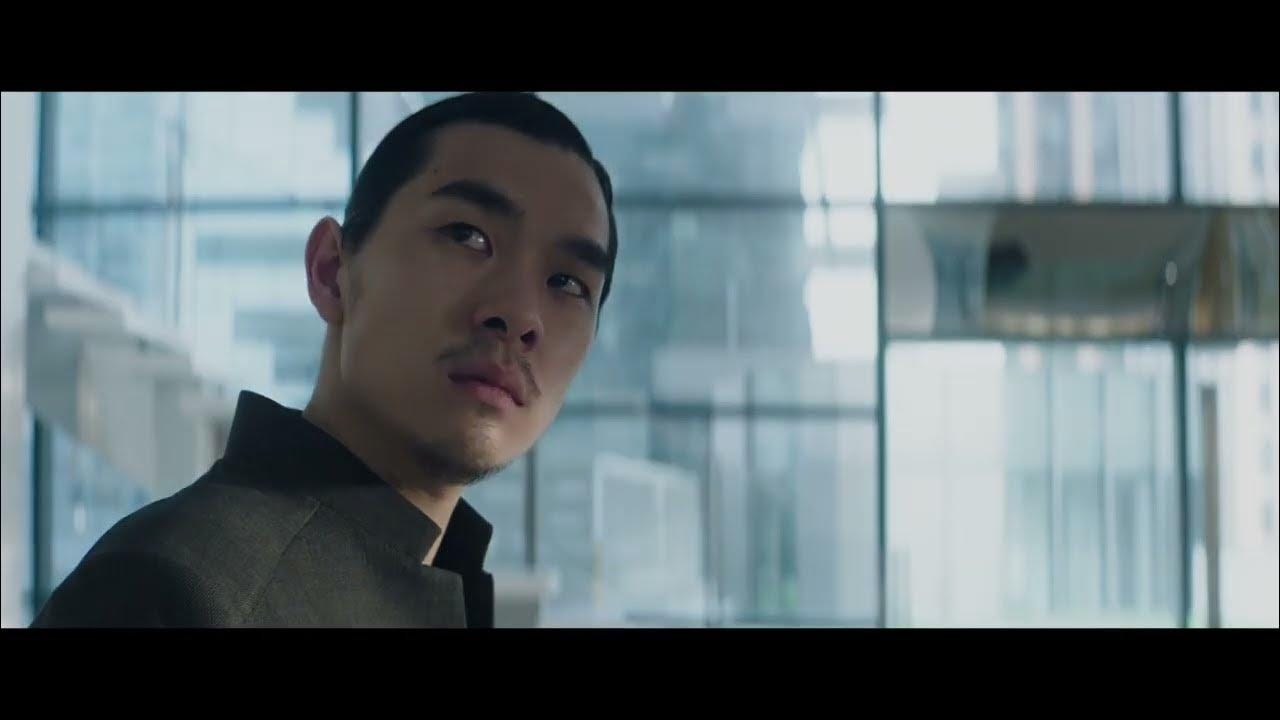Guidance Shows The Bleak Side of Empathy
Learning to know people so you can hurt them.
Rating: 7/10
Neysan Sobhani’s Mandarin-language Guidance is a stylish, visually striking film with an intriguing Black Mirror premise. Unfortunately, it’s a little too enamored of its own Black Mirror cleverness for its own good.
An App That Gives You Empathy
The movie is set in a nearish future China ten years after a devastating war. Said war involved biological weapons and radiation. Su Jie (Francesco Chen), a second-generation tech entrepreneur with numerous war scars literal and figurative, has created a new nanotech ingestible AI called “Guidance.”
Guidance allows users to read each other’s bio data—heart rate, perspiration, brain waves. Essentially people using the system cannot lie to each other. Su Jie believes that enforced truth will make everyone trust each other, and will eliminate the violence and war which marked his country and his life.
Su Jie is not the main character though. The protagonist is Han Miao (Sun Jia), his childhood friend and ex-girlfriend. Su Jie gives Miao an early prototype of Guidance. She and her current boyfriend, Mai Zi Xuan (Harry Song) install it on a trip to a retreat in the woods.
Unable to lie to each other, they start to reveal secrets and lies which threaten their relationship. Zi Xuan is jealous of Su Jie. Miao is jealous of just about everyone. She’s even angry that Zi Xuan’s Guidance AI speaks with a female voice.
Su Jie’s future dream of tech utopia is based on a cliché. He thinks that the problems of the world can be solved if everyone just understood each other better. Guidance is a lie detector, but it’s also a kind of empathy machine. It forces you to know what the people around you are thinking. You get into their heads and they get into yours.
Learning to Hurt Each Other Better
The result of this tech mind meld is not perfect amity. On the contrary, Guidance provides the characters with new and inventive ways to hurt each other. Miao and Zi Xuan deliberately ask each other questions they know that the other doesn’t want to answer.
But turning empathy into tech creates other opportunities for deceit and cruelty, too. You can try to deceive the system. You can try to use Guidance to set others against each other.
We even learn that the basic tech behind Guidance, developed by Su Jie’s father, was originally used to gather intelligence during the war. Empathy can mean putting yourself in someone else’s position in order to sympathize with them or help them. But it can also mean putting yourself in someone else’s position so that you can anticipate their actions, the better to destroy them.
Sobhani’s visual style cannily captures the ambiguous effects of emotional clarity. The film composition is stunningly immaculate. When Maio and Zi Xuan go for a walk in the woods, you can see the outline of every leaf spreading out around them. Emotional intimacy flourishes in a rush of greenery. Everything comes alive.
But in other scenes, the vividness becomes oppressive. The couple’s vacation home is all glass and clean angles. Outside, the rectangular white walls rise steep and sheer.
Sobhani positions the characters at a distance from the camera, so they’re isolated and dwarfed by the imposing blocks of blankness. They’re hyper-visible to the viewer, as they are hyper-visible to each other. That isn’t comforting or beautiful. It’s alienating and claustrophobic. They look like bugs pinned to the screen. Or like the goldfish swimming in the bowl on a table inside the house, always under observation, never able to escape.
Too Many Twists
Jennifer Phang’s 2015 film Advantageous had comparably frozen, vivid imagery. It also had comparable themes of emotional invasion in a near-future near-dystopia. The main character in that film transfers her brain patterns into a different body in order to afford the fee for her daughter’s expensive high school.
Phang was remorselessly willing to follow her vision of paralysis all the way to its heartbreaking, inert conclusion. Advantageous is a film about claustrophobia which deliberately doesn’t go anywhere. The twist is just that a miracle didn’t occur. There’s no final revelation or catharsis.
Sobhani in contrast keeps wanting things to happen. The last third of the film delivers major new revelations about all three protagonists. The plotting is clever, and there’s a certain satisfaction in the puzzle-box solution. But it also feels like Sobhani is desperately wriggling away from some of his harsher, more difficult insights.
Ironic revelations, villainous machinations, heart-jerking tragedy—it’s all competently handled. There are lots of genre pleasures as you empathize with the characters. But the film’s real strength is in the moments that deny pleasure. In its best moments, the film suggests that seeing and understanding don’t necessarily lead to identification and understanding. They can lead to a blank wall.
This is Sobhani’s first feature, so it’s understandable that he’s somewhat tentative about following his themes and imagery through to their most challenging, idiosyncratic conclusions. Guidance is a thoughtful movie that flirts with something truly original and strange before backing towards a more conventional conclusion. Sobhani has great formal skills, though, and great promise. I’ll be looking for his next movie with interest.


